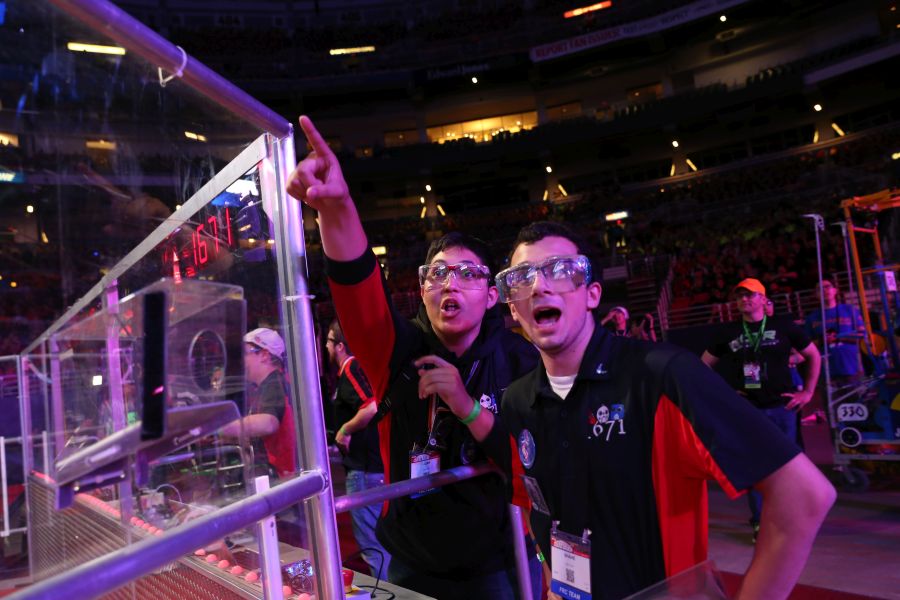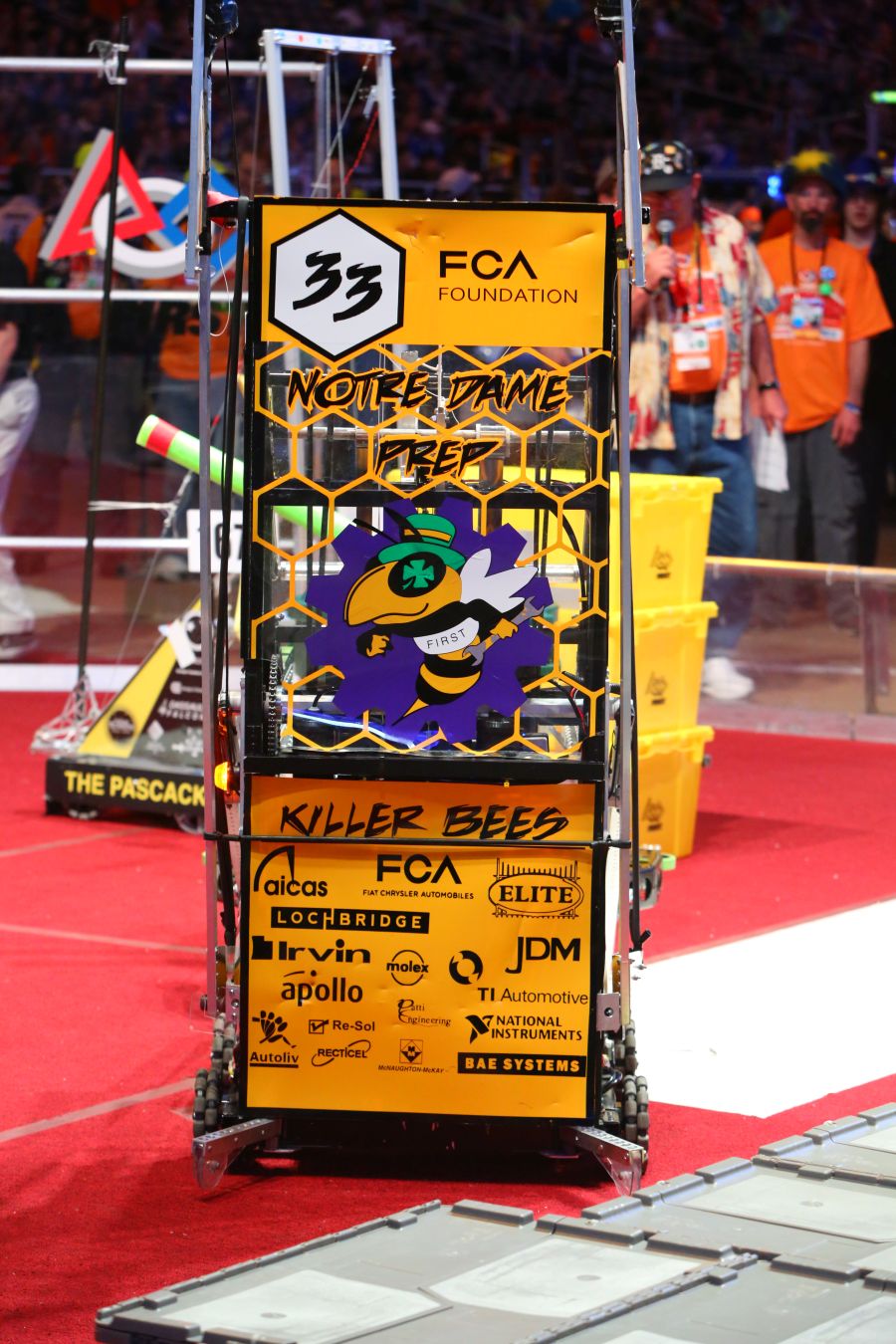
Robohub.org
FIRST hosts 20,000 students in world’s largest robotics competition

Photo Credit: Adriana M. Groisman
More than 20,000 students from around the globe traveled to St. Louis to compete in the annual FIRST® (For Inspiration and Recognition of Science and Technology) Championship. The 4-day event ended Saturday night in front of a crowd of more than 40,000.

Photo Credit: Adriana M. Groisman
Approximately 78,500 students on 3,140 teams from 24 countries competed during the 2016 season. More than 900 teams from 42 countries came to St. Louis to compete in one of the four FIRST programs:
- FIRST® LEGO® League Jr. (grades K-3, ages 6-9)
- FIRST® LEGO® League (grades 4 to 8, 9 to 14-year-olds in the U.S, Canada, and Mexico; 9 to 16-year-olds outside the U.S., Canada, and Mexico)
- FIRST® Tech Challenge (grades 7 to 12, 12 to 18-year-olds)
- FIRST® Robotics Competition (grades 9 to 12, ages 14 to 18)
Hundreds of awards were given, from the Chairman’s Award (given to a Las Vegas team) to the Against-All-Odds Award. Click here to see the complete list of award winners.
Dean Kamen, FIRST Founder, in his closing remarks, urged students to use their imagination to solve some of the world’s greatest challenges:
“We believe that if you can show kids that the tools of mathematics and engineering empower them to do some really cool, really fun things, they’ll get passionate about it.”
Colin Gillespie, President, LEGO® Education North America, said:
“Research shows we’re significantly more creative when we’re 5 years old than we are when we’re 25, but you can keep your creativity alive with playful learning experiences like those you get through FIRST. You’re rekindling that awesome creativity and can see the world in ways (we) can only hope to imagine.”
NASA Administrator Maj. Gen. Charles Bolden said:
“I can’t stress how important it is to have young people like each of you pursuing STEM. You and your Mentors have demonstrated that it can be a lot of hard work, but also a lot of fun. It’s important work that can make a real difference to the world’s future.”
tags: c-Events


